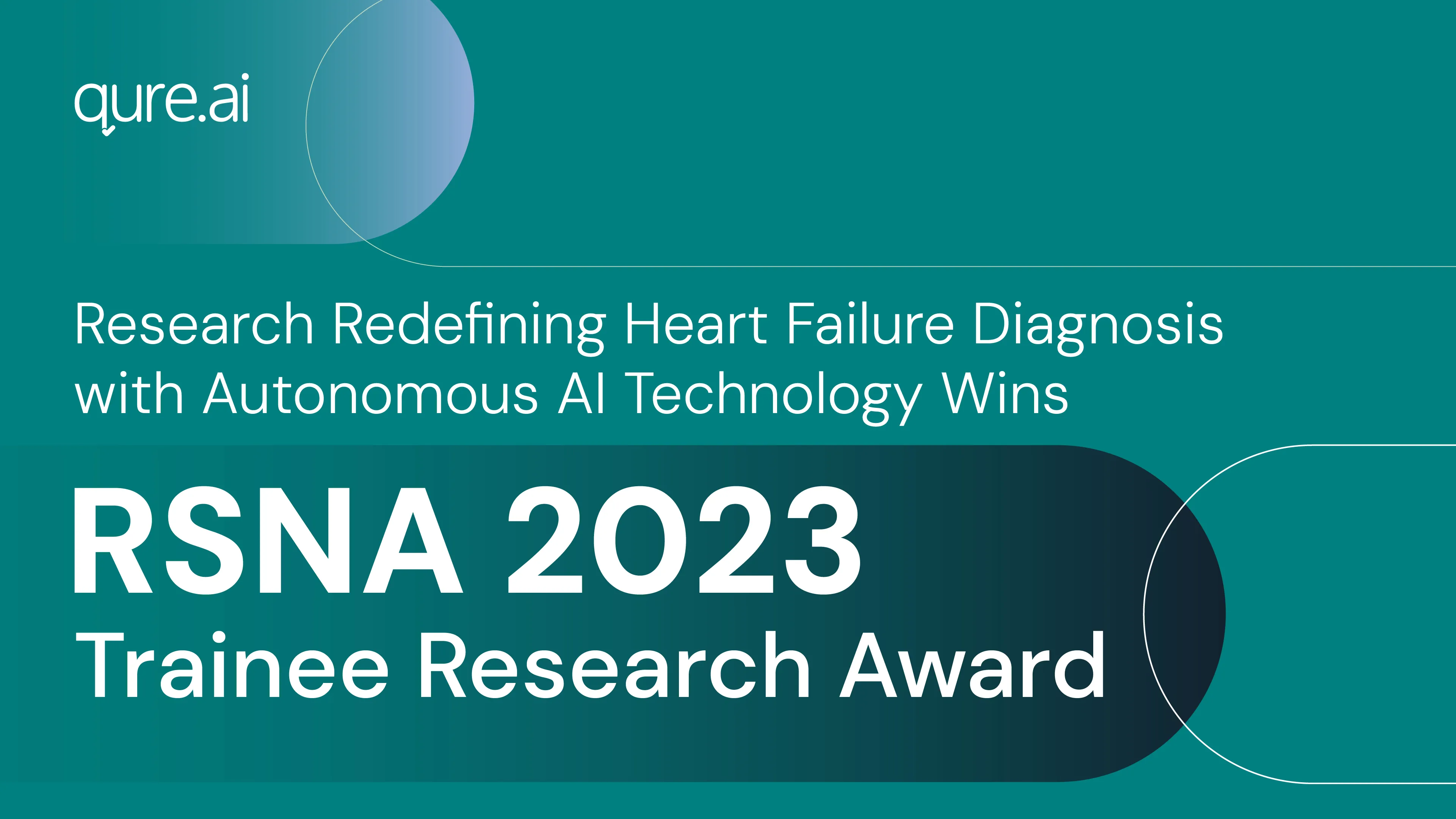Multicentre study on Autonomous AI-based chest X-ray Interpretation using Qure.ai's qXR – HF shows potential in detecting Heart Failure as early as a year in advance.

Back
A ground-breaking research presentation titled "Autonomous AI-based CXR Interpretation for Predicting Congestive Heart Failure: A Multicentre Study," has been awarded the prestigious RSNA 2023 Trainee Research Award. Dr. Emiliano Garza Frias, lead author and post-doctoral fellow at Massachusetts General Hospital, will present this research paper at the upcoming 2023 RSNA Annual Meeting.
Many individuals suffering from heart failure often exhibits symptoms and signs over an extended period before receiving a formal diagnosis. Typically, the diagnosis is not rendered until the onset of severe breathlessness and ankle swelling necessitates hospitalization. The delayed diagnosis of heart failure results in increased morbidity and mortality rates among affected patients. With a global estimate of 64.3 million people afflicted by heart failure, it affects approximately 1-2% of the adult population.
Annually, over 1 million Americans receive a diagnosis of heart failure (HF), with an initial-year mortality rate exceeding 20%. Unless significant improvements in patient outcomes are realized, it is projected that the annual total cost of healthcare for heart failure inthe United States will rise to $69.7 billion by the year 2030.
Dr. Emiliano Garza Frias, Post-doctoral Researcher at Massachusetts General Hospital and the lead author, expressed the potential of this technology: " Heart failure, a progressive disease, often depends on early detection for favorable treatment outcomes. Early detection of heart failure in our research can help initiate early intervention and improve the prognosis."
The retrospective multicenter study included 1117 patients, encompassing various age groups and genders, across 17 healthcare sites. The study, which aimed to evaluate the effectiveness of an autonomous AI model in identifying chest radiography (CXR) signs of heart failure (HF) in patients without a previous cardiovascular history or diagnosis, has demonstrated remarkable success. The deidentified chest X-rays of these patients were processed with Qure.ai's FDA-cleared qXR AI algorithm to assess for signs of enlarged cardiac silhouette, pleural effusion, and an HF-index. The results were then stratified based on the time between the chest X-ray and HF diagnosis, ranging from less than three months to 10-12 months.
Key Findings:
* Early Detection: The study demonstrates that the AI model can predict HF up to 12 months before clinical diagnosis.
* High Accuracy: The AI system achieved an accuracy score of 0.72 while maintaining consistent performance across patient demographics and imaging sites.
* Stability: The AI's performance remained stable across different durations prior to HF diagnosis with constant sensitivity (0.83) and high AUC values.
The study showcases the potential of an autonomous AI model in identifying HF signs up to 12 months before clinical diagnosis, with consistently high accuracy. The AI model demonstrated its effectiveness across different patient demographics, including gender, age group (over 45 years), and various imagingsites. These findings hold immense clinical relevance, offering the possibility of early detection and treatment for unsuspected heart failure.
The research paper will be presented at the 2023 RSNA Annual Meeting on November 28, 2023, at 12:45 PM Central Time.
For more information: https://www.qure.ai/events/rsna23
Media notes:https://www.ncbi.nlm.nih.gov/pmc/articles/PMC7546989/